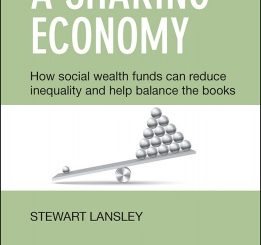Book Review by David Shirreff
First, the good news. This is undoubtedly a useful book. It is a mine of information and anecdote, cleverly told, about the kleptocrats who apparently move untroubled around the world boosting each others’ power games and washing each others’ dirty laundry while keeping up their unhealthy rivalry.
Its conclusion is also sobering and plausible: that the world is run by these people and there is very little we can do about it. The financial and legal systems are designed to reinforce rather than challenge their high-handedness. Tom Burgis dubs these rival but co-operating powers as the Party (in China), the Nats (the extreme right in the US, Turkey etc), the Brits (the British establishment), the Petros (the oil-rich), and the Sprooks (spies in league with crooks, mostly Moscow-inspired).
Burgis spins a narrative over 41 chapters explaining how these kleptocrats have grown and thrived in America, London, the former Soviet states, China, Africa, Malaysia. Pitted against them, in an unequal struggle, are a handful of whistleblowers and plodding investigators with few resources at their disposal. The authorities in most of these countries have been slow to respond even to glaring revelations of downright theft, and in many cases have ended up protecting those who ought to be locked up.
The anecdotes are there, the names of oligarchs and their bands of relations exercising entitlement. It is a cycle in which power turns into money then back into power. A major example is Donald Trump who brilliantly turned money into power and is now about to reverse the process.
There are two heroes in this book. The first is Nigel Wilkins a former employee of BSI the Italian-Swiss Bank, who turned into a whistleblower when his efforts at achieving compliance internally had failed. He left with a dossier of secret client accounts. (BSI was the first of many Swiss banks to pay heavily for helping US clients evade tax and launder money.) Wilkins then worked at the UK’s Financial Conduct Authority but was fired for “not respecting confidential information”. In other words the City watchdog took the bankers’ side not his.
The other hero is a less likely one in a book about villainous kleptocrats: Mukhtar Ablyazov, a Kazakh banker who has been pursued for fraud and money-laundering in many jurisdictions. Burgis suggests this man may be different: a political refugee from a tyrannical regime controlled by former president Nursultan Nazarbayev. Yet Ablyazov siphoned off money from BTA, Kazakhstan’s biggest bank, as he claimed, to prevent the assets being seized by the president. He fled the country in 2008 and has been a fugitive from justice ever since. In 2012 he was sentenced to 22 months in prison by the UK Court of Appeal for contempt of court: failing to disclose assets, lying under examination and forging documents. He fled the country.
The other view of Ablyazov is that he is a Kazakh version of the Russian oligarch Mikhail Kordokhovsky. Each defied his president’s wishes by going into opposition politics and had to bear the consequences, jail and exile. Each continues to sponsor movements for political or social change in his home country.
But in the case of Ablyazov such a profile does not fit with what happened to BTA bank on his watch. Billions of dollars were diverted to subsidiaries abroad while the failing loan book remained in Kazakhstan. Saving the bank and its many Kazakh depositors cost the country billions. It is hard to see Ablyazov as any more virtuous than the other money men mentioned in the book.
The book tries to suggest that all the moving parts of this kleptopia have constructed a global conspiracy against the rest of us, exploiting not only the toiling billions but our “simmering planet”. But have they really? Burgis slides easily from anecdote to anecdote, dropping in thumbnail biographies of spooks, gofers, sons-in-law, presidents and villians. When he drops a name familiar to this writer the tale seems accurate. In other words he has backed his narrative with good research – over 100 pages of footnotes plus an index bear that out.
But the subject is very complex – far more complex than this depiction of a stratosphere of villainy encircling the planet may suggest. There are many agencies and agents working tirelessly against corruption. They do occasionally score some victories. One such was Nigel Wilkins, the hero of the book who died in 2017. The moneymen may have tried to shut him up by saying: “Just normal business, Nige” (the punchline of the book). But there are many more shades of villainy, and means of bringing it to justice, than this book infers.
Kleptopia: How Dirty Money is Conquering the World by Tom Burgis
ISBN 978-0-00-830834-6




Be the first to comment